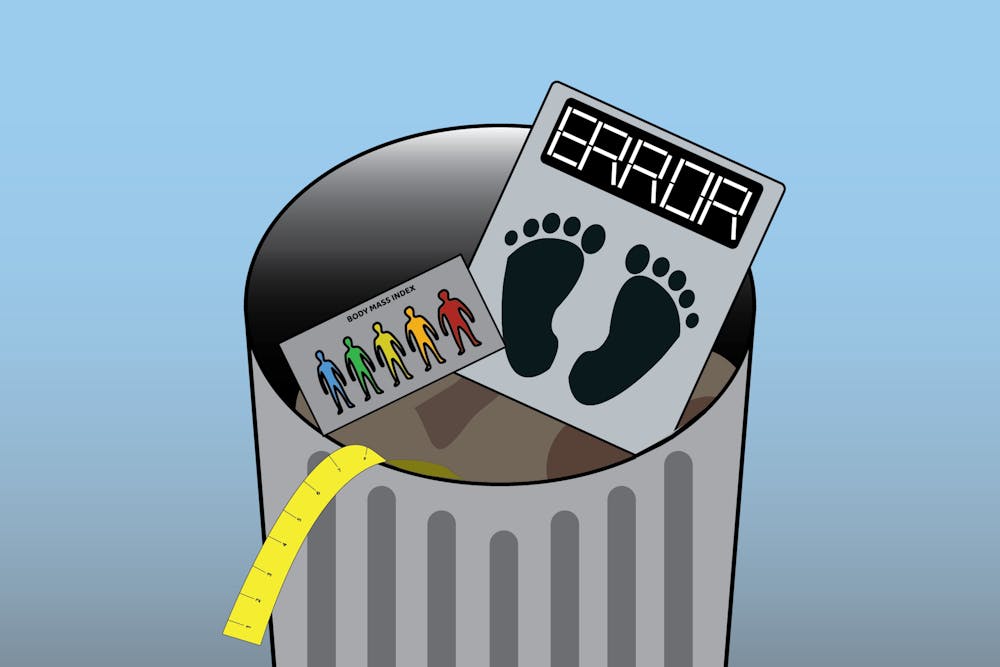It’s a story I’ve heard time and time again from friends. You walk into the doctor's office to see your body mass index being pointed to you on a screen. This ratio of height to weight categorizes you as overweight but not obese, but you have a healthy diet and go on a run a couple times a week. You wonder what you can do to change that label but also why you would have to in the first place.
Since I turned 14, my BMI has sat comfortably in the overweight category. I rowed two hours a day throughout high school and had parents who obsessively worked fish and whole grain rice into dinners. I had nothing to worry about, said my doctors. Although, they suggested that I keep an eye on the number that showed up on the scale.
This excessive focus on weight as a measure of health has plagued our healthcare system for years. BMI serves as an indicator for an array of health issues like high blood pressure, increased risk of heart attack and Type 2 diabetes. But it can also create unnecessary panic and guilt about size for otherwise-healthy individuals.
On Jan. 14, medical journal The Lancet published new obesity guidelines, which were endorsed by 76 organizations globally. Under this standard, individuals with excess fat deposits are considered preclinically obese, while those with altered organ functioning and limited daily functions due to weight would be diagnosed as clinically obese. In the status quo, we diagnose obesity based on BMI alone: if this number is above 30, an individual will receive intervention for their weight.
This new symptomatic approach to obesity management guarantees that there are fewer moments of panic for patients who have no issues with their weight, placing a more holistic view of health at the forefront of diagnostic processes.
These guidelines are similar to how we only take cold medication once we’ve started exhibiting symptoms of a cold. Only those who are diagnosed as clinically obese receive direct treatment for their condition. This can involve anything from surgical interventions and drug-based treatments to a visit to my house for salmon.
It seems counterintuitive to try and focus less on weight in a country which is suffering from a seemingly never-ending obesity epidemic, but our current system has us suffering from a shame epidemic too.
We treat very few other diseases as simply as we do obesity. Historically, individuals have been told they have a problem merely by a number shown on a scale. For otherwise-healthy individuals, this can create pressure to rapidly lose weight or intervene with medication, both risky and potentially unsafe measures.
Being preclinically obese is not totally without risks, but if individuals have a healthy diet and get a good amount of exercise there isn’t anything to fear; these are things everyone, regardless of weight, should practice.




